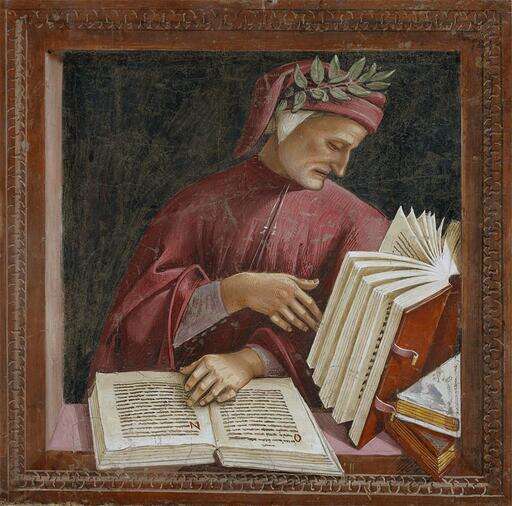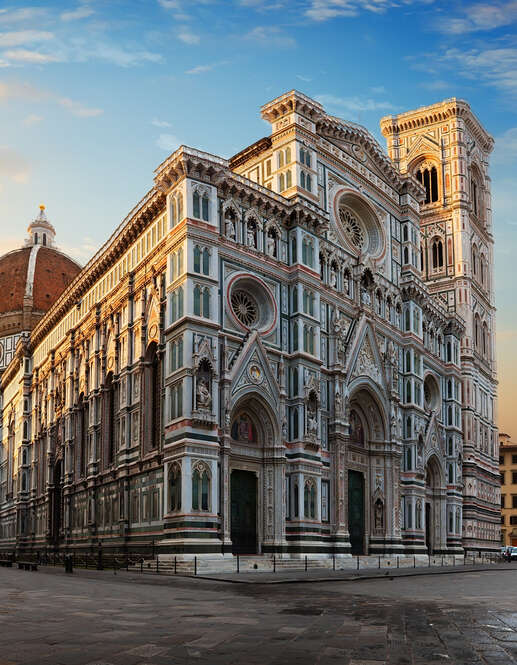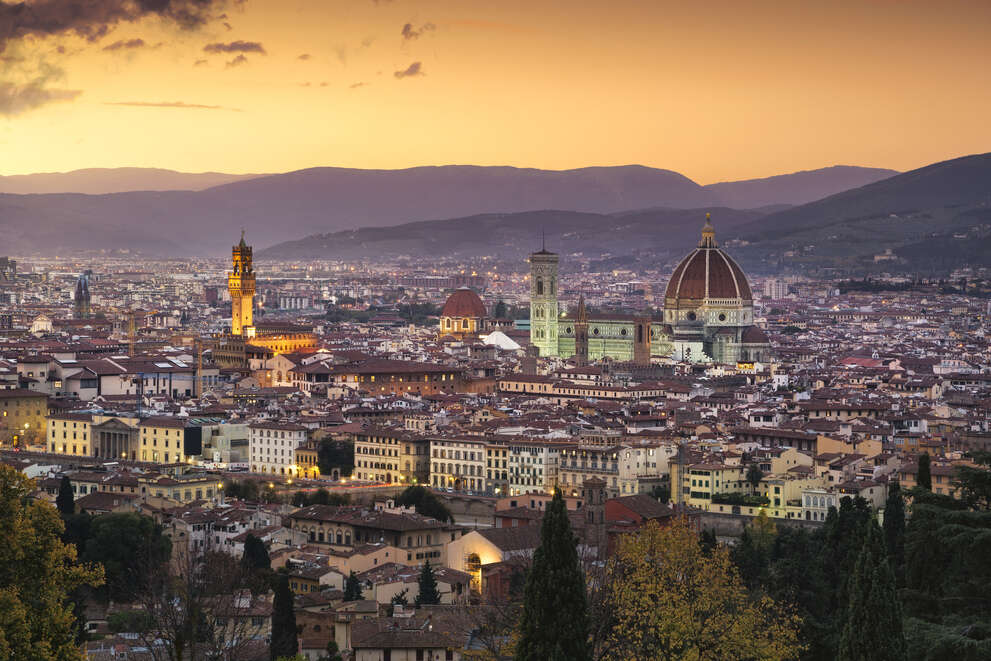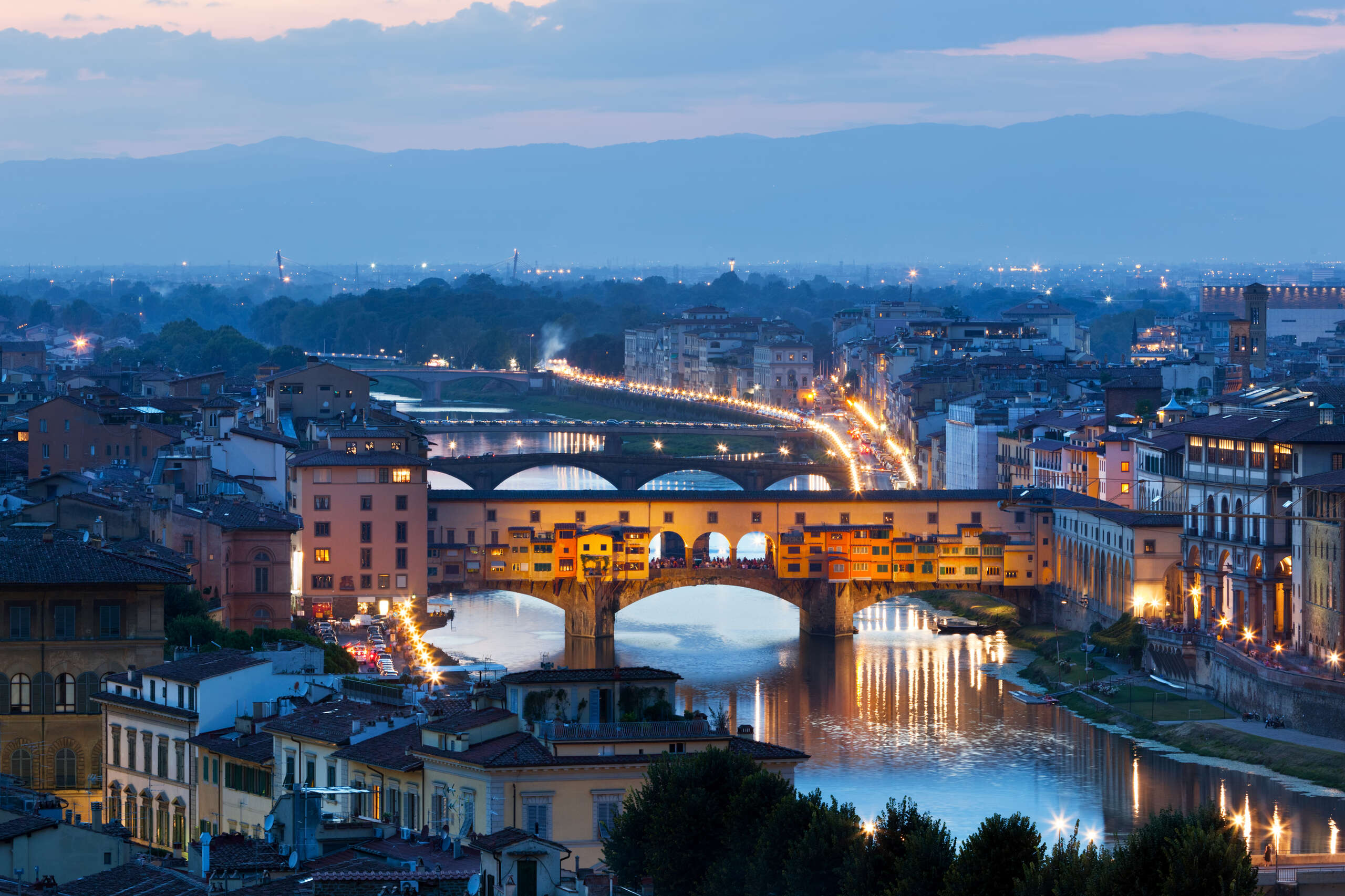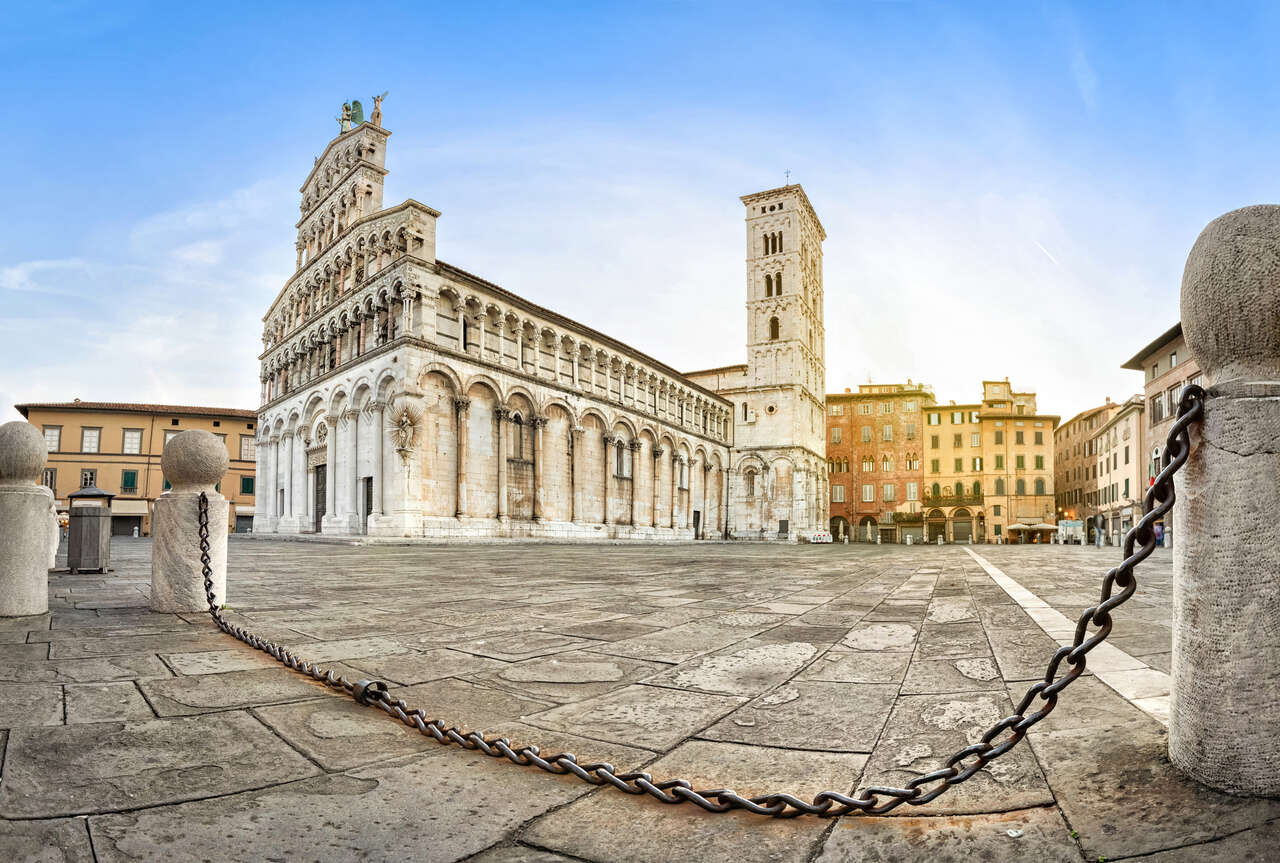Florence
Florence is a city in Central Italy and the capital city of the Tuscany region with the largest population.
Florence was a center of medieval European trade and finance and one of the wealthiest cities of that era. It is considered the birthplace of the Renaissance, and has been called "the Athens of the Middle Ages". A turbulent political history includes periods of rule by the powerful Medici family, and numerous religious and republican revolutions. From 1865 to 1871 the city was also the capital of the recently established Kingdom of Italy.
The Historic Center of Florence attracts 13 million tourists each year, and Euromonitor International ranked Florence as the world's 72nd most visited city in 2012, with 1.4 million visitors. It was declared a World Heritage Site by UNESCO in 1982. The city is noted for its culture, Renaissance art and architecture and monuments. The city also contains numerous museums and art galleries, such as the Uffizi Gallery and the Palazzo Pitti, and still exerts an influence in the fields of art, culture and politics.
Florence plays an important role in Italian fashion, and is ranked in the top 15 fashion capitals of the world by Global Language Monitor; furthermore, it is a major national economic center, as well as a tourist and industrial hub. It is the 4th richest Italian city.
The language spoken in the city during the 14th century came to be accepted as the model for what would become the Italian language. Thanks to the works of the Tuscans writers Dante, Petrarch and Boccaccio, the Florentine dialect, above all the local dialects, was adopted as the basis for a national literary language.
Great deal of wealth is in Florence thanks to the famous Medici family. It was an Italian banking family and political dynasty that first began to gather prominence under Cosimo de' Medici, in the Republic of Florence during the first half of the 15th century.
